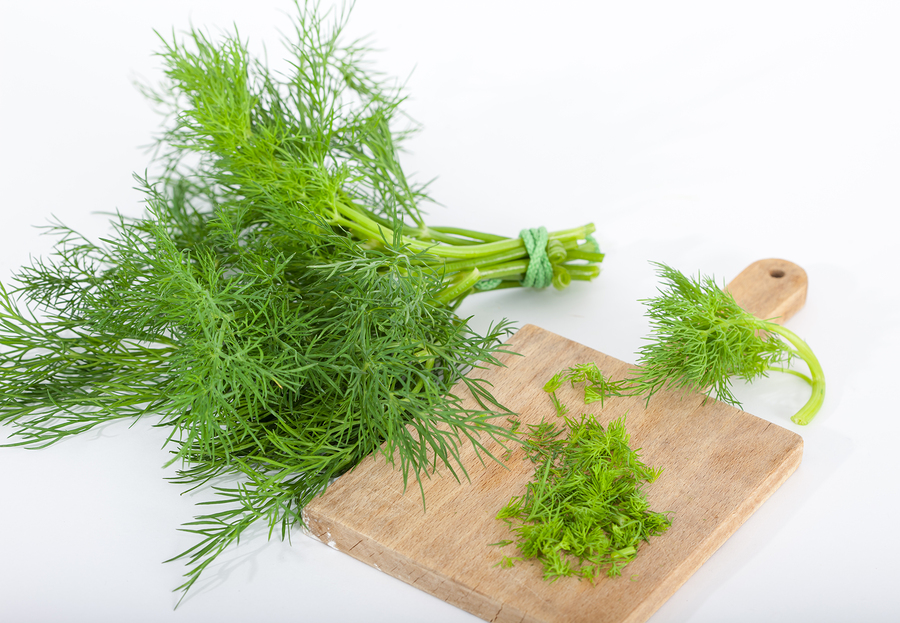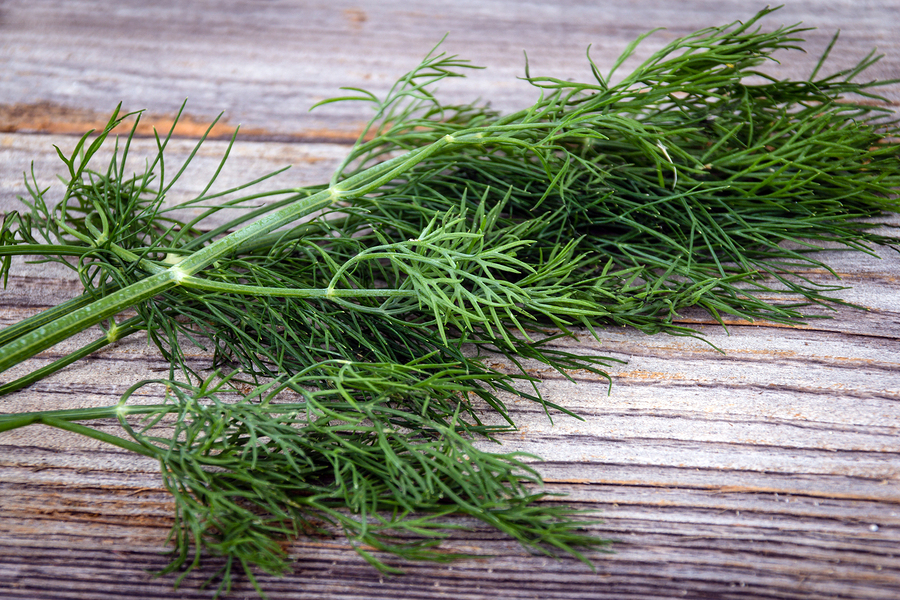- Make It Yourself Lavender Heart-Shaped Bath Bombs!
- 20 Things You Never Knew About “Down There”
- 12 Best Foods For Those Suffering From Arthritis Pain
- 12 Personal Hygiene Mistakes Almost Everyone Makes (Mom Never Told You About #4!)
- 15 Medicinal Plants And Herbs From The Cherokee People
- 12 Mind-Blowing Benefits Of Drinking Coconut Water During Pregnancy
- 12 Outstanding Winter Foods That Won’t Fatten You Up Like A Christmas Turkey
The Benefits Of Dill You’ll Be Amazed At!

Photo credit: bigstock.com
It is common knowledge that herbs and spices have been used for culinary and medicinal purposes for thousands of years. While many people are aware of the benefits of turmeric, sage, or peppermint, one herb that is often overlooked is dill. Commonly used to make pickles, dill has many health benefits of which you would be wise to take advantage.
The name dill comes from Old Norse dylla, meaning “to soothe,” and it was often used for treating insomnia and other medicinal applications for its calming effects. Ancient peoples used the herb to relieve various gastrointestinal problems like gas, constipation, diarrhea, and heartburn.
But is there any science to back this up? There is now! A study by BMC Pharmacology confirmed that dill does offer benefits for these and other gastrointestinal conditions, in part due to its antispasmodic effect on the intestinal tract. But what else can dill do?
1. Dill can clean your mouth
If you’ve ever wondered how people in ancient times cleaned their teeth long before toothpaste was invented, the answer may be dill seeds. Dill can be used to freshen breath, and the ancient Greeks would chew dill seeds to clean the mouth. Dill seeds have antimicrobial properties which help cleanse the mouth and kill harmful bacteria, preventing infections and foul breath.
2. Dill can help lower your cholesterol levels
The modern Western diet can lead to all kinds of nutritional imbalances and resultant health problems. Among these is a high level of harmful low density lipoprotein (LDL) cholesterol. Experiments on hamsters and rabbits showed very promising results for dill’s effectiveness in helping to reduce LDL levels in the body. Hamsters that were given dill extract with their food saw their LDL levels drop significantly. In a similar study, rabbits provided powdered dill along with their meals saw their LDL levels decrease, along with lower levels of fibrinogen and glucose.
3. Relief for respiratory problems
Dill contains certain compounds, like kaempferol, that can act as an antihistamine and has decongestive properties. Essential oils from dill can help alleviate symptoms of minor respiratory problems like congestion, coughing, and histamine-linked allergies.
Continue to Page 2

Photo credit: bigstock.com
4. Treatment for hiccups
Hiccups can occur because by a number of different factors, but it is often due to gas being trapped in the esophagus, an allergenic substance, or nervous disorders. Dill’s aforementioned antispasmodic properties can help stop the small, repeated muscle spasms commonly referred to as hiccups, and its calming effects can help reduce hiccups caused by allergies as well.
5. Dill can help you sleep
As mentioned earlier, dill was used in ancient and medieval times to relieve stress and help promote quality sleep. But it was unknown until recently why exactly it was so effective. Scientists have found that the essential oils of dill contain B vitamins and flavonoids which can have a sedative effect on the body, alleviating stress and inducing feelings of relaxation and calmness.
6. Cancer fighting properties
Dill weed containscompounds called monoterpenes, including limonene and carvone, both of which have cancer-fighting properties. These chemicals can trigger the secretion of an enzyme called glutathione-S-transferase, which can help neutralize carcinogenic compounds that enter the body. Dill also has antioxidant properties which help fight harmful free radicals and reduce the chances of cancerous cell growth.
7. Menstrual relief
Dill is considered an emmenagouge, an herb that helps facilitate menstruation. If a woman is experiencing problems with her period, Dr. James Duke, author of The Green Pharmacy recommends drinking a tea brewed with two teaspoons of crushed dill seed.
Dill may offer benefits to women who are currently nursing as well, since consuming dill promotes the production of more breastmilk. This “dill enhanced” milk can help soothe the baby’s stomach due to its aforementioned ability to relax the muscles of the gastrointestinal tract. It is important to note, however, that pregnant women should avoid dill, since the emmenagogic properties of the plant are so potent.
READ ALSO: 15 Medicinal Plants And Herbs From The Cherokee People
Dill is commonly used in cooking, but it remains an under-appreciated herb for healing purposes. Try experimenting with some dill seeds or dill weed essential oils in your next home remedy!
References:
































